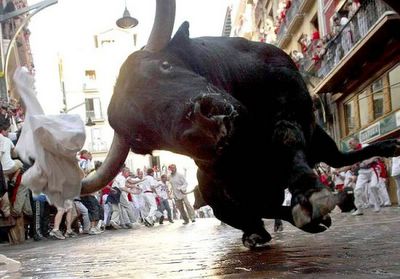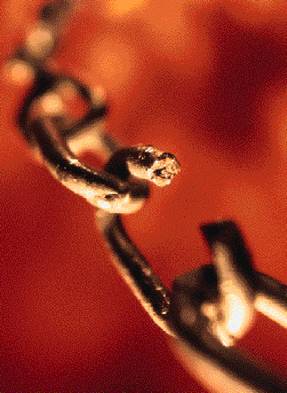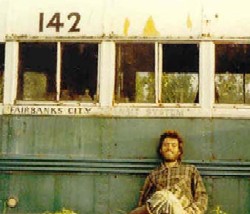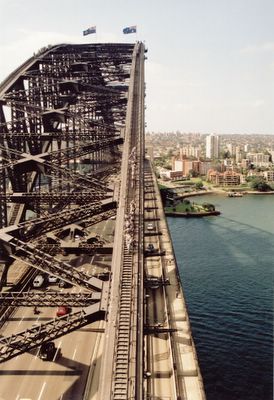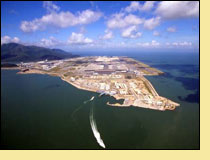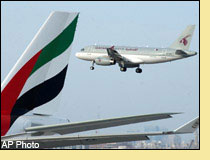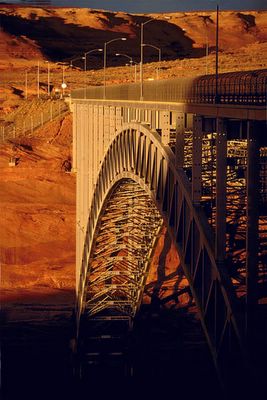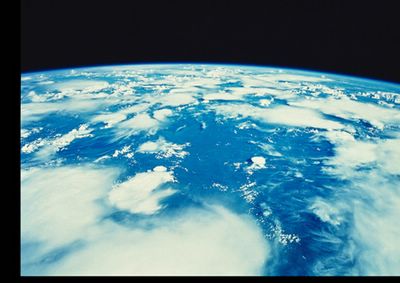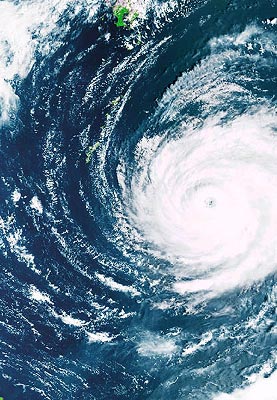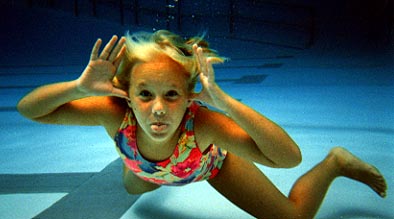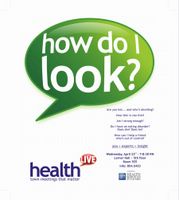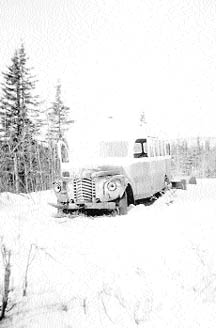 I Want To Ride In The Bus Chris Died In
I Want To Ride In The Bus Chris Died In Ten Years Ago Chris McCandless Starved to Death on the Stampede Trail. Today Hundreds of Pilgrims Trek to the Bus Where He Perished.
Story by Sherry SimpsonPhotos by Charles Mason
Before we started our small journey last year to the place where Christopher McCandless died, I wondered whether we should be traveling on foot rather than by snowmachine. It was probably the last weekend before the sketchy snow would melt and the river ice would sag and crack. If we waited a few weeks, we could hike the Stampede Trail to the abandoned bus where his body was found in 1992. Wouldn’t it seem more real, more authentic somehow, if we retraced his journey step by step?
No, I thought. This is not a spiritual trek. I refuse to make this a pilgrimage. I will not make his journey my own.
And so we set off on the tundra, snowmachines screeling across a thin layer of hard snow. The five of us moved quickly, each following the other westward through the broad valley. To the south, clouds wisped across the white slopes that barricade Denali National Park and Preserve. I wore ear protectors to dull the grinding engines. When the sun burned through, we turned our faces toward it gratefully, unzipped our parkas, peeled away fleece masks. It had been a long winter — warmer than most in Interior Alaska, but even so each day was filled more with darkness than light.
We kept on, the only motion against a landscape that seemed still and perfect in its beauty. It was the kind of day when you could think about Christopher McCandless and wonder about all the ways that death can find you in such a place, and you can find death. And then, a few minutes later, you’d look out across the valley, admiring the way the hills swell against the horizon, and think, "Damn, I’m glad to be alive in Alaska."
A few summers ago I rode in a shuttle van from Fairbanks to the park with a group of vacationers and backpackers. As we left town, the driver began an impromptu tour of McCandless’s final days. In April 1992, he had hitchhiked to Alaska, looking for a place to enter the wilderness. The van driver pointed out a bluff near Gold Hill Road, the last place McCandless camped in Fairbanks. The driver talked about the purity of McCandless’s desire to test himself against nature. He slowed as we passed the Stampede Road, the place where a Healy man had dropped off McCandless so the young man could begin his journey. He ignored all offers of help except for a pair of rubber boots. He did not take a map.
In the van, people whispered to each other and craned their necks to peer at the passing landmarks.
McCandless had hiked about 25 miles along the trail before stopping at a rusting Fairbanks city bus left there in the 1960s by a crew building a road from the highway to the Stampede Mine, near the Park boundary. He had a .22 rifle and a 10-pound bag of rice. In the back of a Native plant lore book he scribbled brief, often cryptic entries. In July he tried to leave but apparently was turned back by the roiling Teklanika River. He did not know enough to search for a braided crossing. By August, a note tacked to the bus pleaded for help from any passerby: "I am injured, near death, and too weak to hike out of here," it said in part. In early September, hunters found his body shrouded in a sleeping bag inside the bus. He had been dead for more than two weeks. Although he had tried to eat off the land, and had even succeeded in killing small animals and a moose, he had starved, an unpleasant and unusual way to die in America these days.
The strange manner of his death made the 24-year-old infamous in Alaska as authorities tried to puzzle out his story. A 1993 Outside magazine article by Jon Krakauer, followed by the 1996 best-selling book "Into the Wild," made him famous everywhere else.
The van driver was maybe in his early 30s, mild and balding. As he drove and talked, he held up a copy of Krakauer’s book, a sympathetic and compelling portrait of McCandless. The driver said he kept the book with him always because he felt close to the dead man. "I understand his wanting to come here and go into the wild," he said. Like McCandless, he’d attended Emory University, and he and his wife had recently moved to Anchorage in search of whatever it is people want when they come to Alaska.
In a van full of out-of-state vacationers, the driver felt safe criticizing the response of Alaskans to the story of McCandless. "They called him a young fool who deserved what he got," he said. "There was not a positive letter to the editor written about Chris McCandless. It went on for days." He checked our reactions in the rearview mirror. "It was pretty chilling to read."
Through some strange transmogrification, Christopher McCandless has become a hero. Web sites preserve high school and college essays analyzing "Into the Wild," which is popular on reading lists everywhere and frequently seen in the hands of people touring the state. A California composer has written a concert piece meant to convey the dying man’s states of mind — fear, joy, acceptance, etc. A Cincinnati rock band has named itself "Fairbanks 142," after the bus where McCandless lived and died.
And then there are the pilgrims, the scores and scores of believers who, stooped beneath the weight of their packs and lives, walk that long Stampede Trail to see the place where Chris McCandless died — and never take a step beyond.
For two hours we rode along the rim of the shallow valley. Heat from the engines warmed our hands. We followed a trail used by dog mushers and snowmachiners; here and there other trails looped to the north or south. Russet scraps of tundra patched the snow, and the packed trail wound across the ground like a boardwalk. We had barely beaten spring. A Healy woman named Connie led most of the time because she knew the way. The others in the group were my friends Kris Capps, Joe Durrenberger and Charles Mason. Kris and Joe live just outside the park; Kris, a freelance writer, covered the McCandless story when it first broke in Alaska, and she’s the one who told me that people had been visiting the bus like it was Jim Morrison’s grave in Paris. Joe had visited the site shortly after the body was discovered. Charles, a photographer, came along to document the bus and to make tasteless jokes. He wasn’t alone. I suggested our journey should be titled "Into the Weird."
Now and then we rode by other trails looping across the snow, and an hour into our trip, two snowmachiners passed us before we reached the Teklanika River. They were friends of Joe’s on their way northward to fix an off-road tracked vehicle that had broken a fuel line during a fall moose hunt. Their trail curved across a distant ridge, and I admired their ease and confidence roaming around out here, where machines can break down or dogs can run away and the walk home will be long and troublesome. You couldn’t call it the middle of nowhere; the Stampede Trail has been mapped for decades. Still, you’d want to know what you’re doing, so as not to make your next public appearance in a newspaper headline or as another statistic.
The Teklanika River ice had not yet softened, and we crossed its smooth expanse without trouble, just below where it emerges from a gulch. We cruised through Moose Alley, dipped into the forest, wound across the beaver ponds, and rose along an alder-thick ridgeline. Occasionally moose tracks postholed the snow. I tried to imagine hiking here in the summer, calling out to bears and waving away mosquitoes.
We rounded a bend and suddenly there was the bus, hollow-eyed and beat up, the most absurd thing you could imagine in this open, white space. Faded letters just below the side windows said "Fairbanks City Transit System." The derelict bus seemed so familiar because we had seen its picture many times in newspapers and on the jacket of Krakauer’s book. For decades it had served as a hunting camp and backcountry shelter, a corroding green-and-white hull of civilization transplanted to a knoll above the Sushana River. Now it was haunted real estate.
We turned off the snowmachines and stood stretching in the sunshine and the kind of quiet that vibrates. A trash barrel, a fire grill, plenty of footprints, and frozen dog shit provided evidence of passing dogsleds and snowmachines. A wire chair leaned against the bus. I wondered how many people had posed there for photographs. The bus made me uneasy, and I was glad to be there with friends. It must have sheltered many people over the years who came to shoot and drink and close themselves up against the night.
Kris and I squeezed through a gap in the jammed door and climbed in. It was warm enough to remove our hats and gloves while we looked around, though an occasional draft swept through the broken windows. A bullet hole had pierced the windshield on the driver’s side. The bus was littered with messages scratched into the rusted ceilings and walls referring to McCandless’s death, which seemed to bring out the earnestness of a Hallmark card in visitors: "Fulfill your Dreams, Nothing Feels Better" and "Stop Trying to Fool Others as the Truth Lies Within," and "The Best Things in Life are Free." Also, "Keep This Place Clean You Human Pigs."
Scattered among the needles and twigs on the floor were bizarre artifacts: frayed hanks of rope, a mayonnaise jar lid, a camp shower bag, blue playing cards. The driver’s seat was missing, but downy grouse feathers lined crannies in the dashboard. A few liquor bottles — big gulps remaining of the Jack Daniels and the Yukon Jack — crowded a small stand, which also held an electronic guitar tuner, a tin coffeepot, shotgun shells, a yellow container of Heet and a can of Copenhagen. Stowed beneath were worn Sorel boots and pairs of filthy jeans, one set patched crudely with scraps of a green wool Army blanket. Were these the jeans mentioned in the book? Hard to believe they were still here considering that locals joke about dismantling the bus and selling it on eBay. It was creepy.
A stovepipe lurched from a small barrel woodstove and poked through the roof. A green tent fly covered the rusted springs of a twin-size mattress. And here was the disturbing part: the bed lodged sideways against the bus’s rear, mattress stained, straw-like stuffing exposed, the remnants of the cover torn and shredded. That’s where his body was found.
On the wall beside the bed was a brass plaque left by his parents that read:
Christopher Johnson McCandless. "Alex." 2/68-8/92. Chris, our beloved son and brother, died here during his adventurous travels in search of how he could best realize God’s great gift of life, with his final message, "I have had a happy life and thank the Lord. Goodbye and may God Bless All," we commend his soul to the world. The McCandless Family. 7/93
Three notebooks sat on the plywood table. They included a three-ring binder protecting a photocopy of Krakauer’s original Outside article with its blaring headline "Lost In the Wild." It was a Monty Pythonesque moment when someone pointed out an unrelated headline on the magazine cover: "Are you too thin? The case for fat." This kind of humor is one reason why Alaskans fear dying ridiculously: the living are so cruel to the foolish dead. It’s a way of congratulating ourselves on remaining alive.
Kris and I began flipping through the steno notebooks, which had been filled with comments by visitors, the way people write in logbooks in public cabins or guestbooks at art galleries. The chronology began with the July 1993 visit by McCandless’s parents. His mother wrote:
"Sonny boy, it’s time to leave. The helicopter will soon arrive. I wondered briefly if it would be hard to enter your last home. The wonderful pictures you left in your final testament welcomed me in and I’m finding it difficult to leave, instead. I can appreciate joy in your eyes reported by your self-portraits. I too, will come back to this place. Mom."
These heartfelt words were followed by a single sentence from Krakauer himself: "Chris — Your memory will live on in your admirers."
"Oh, gag," Kris said.
Kris is not what you would call romantic about the wilderness. She and Joe are among the most competent Alaskans I know. They hunt, guide river trips, paddle whitewater all through Alaska and Canada, and travel frequently in the backcountry. In March, they had wanted to catch some of the Iditarod Trail Sled Dog Race, so they’d snowmachined from their house near McKinley Village through the uninhabited midsection of Alaska to Rainy Pass, winter camping along the 300-mile route. I was embarrassed about my modest survival gear when I saw how well-rigged their machines were with snowshoes, a come-along and other useful equipment compactly stowed. To people like them, the adulation of Christopher McCandless is just one more reason to stay in sensible old Alaska.
Beneath the bed was a small blue suitcase, a Starline, the kind your grandmother might have taken on weekend trips. The lid was busted off the hinges. Christopher McCandless’s mother had filled it with survival gear and left it, and over the years other people had removed things or added to it. Joe dragged the suitcase out, plopped it on the bed and called out an inventory as he sorted through the jumble, beginning with a crumpled silver survival blanket: "The Jiffy Pop tinfoil thing. Look right here: saltwater taffy. Holy Bible. Cheesecloth. A map saying ‘You are here. Walk this way out to get food.’"
He was joking, I think.
"Emergency first aid kit. The mittens. The headnet. Waterproof matches. The squirrels have gotten to the Ramen. Vaseline. Sewing kit. Jungle head net. Toothpaste. Cigarette papers. Princess Cruises Suntan Lotion SPF 30."
There was more: firestarter, tissue paper, soap, a can of tuna. Then Joe grew bored and went outside so Charles could take his picture posing by the famous bus with a can of Spam in his left hand.
"That’s almost bad luck," Connie said quietly, and I had to agree.
Kris and I took turns reading aloud comments left by those who came after the visit by Krakauer and McCandless’s parents. Some were epistles, others aphorisms. The earliest dated to January 1994 and was left by a pair of Alaskans who came by snowmachine: "Cloudy, & 42 degrees. Emergency supplies in good order."
In May, people started recording more intimate thoughts:
"Like Chris, I came to Alaska looking for some answers as I near my last year in college. A very emotional day and a highlight of my summer up here in the wild land of Alaska. Constant thoughts of my family and friends."
"I’ll return next year and try to set myself free again."
"The vibes I felt from the bus made me sit and think for hours. I wasn’t able to sleep until I felt every emotion possible: amazed, sadness, wonderment, happiness, and many more…"
Charles looked over my shoulder and read. "I wish I could come in here and have an inspirational moment," he said. "I wish my life was Zenned out."
"‘Only time will tell how Chris McCandless’s life has affected mine,’" Kris read. She snorted and looked up. "It’s garbage! I mean, am I too cynical?"
We were. We were too cynical to read entry after entry from people looking for meaning in the life and death of a man who had rejected his family, mooched his way across the country and called himself "Alexander Supertramp" in the third person. I struggled to imagine the emotional currents that had carried people here to this bus, so far from their homes, to honor his memory. Later, a friend who had been born in Alaska and exiled to Maryland for five years tried to explain the overwhelming smallness and sameness of life on the suburban East Coast, where lawn care excites great interest; no wonder someone like Christopher McCandless seems adventurous and spiritual and inspiring, despite being dead.
Several visitors mentioned that "Into the Wild" had prompted their trips, but the book must have motivated nearly all of the pilgrimages, because why else would people attach any significance to the bus? They had come from Europe, California, Alabama, Michigan, Minnesota, Utah, Ontario, North Carolina.
One man made the journey after reading a book review while sitting in a doctor’s office in Ithaca, N.Y. "It was then I knew the bus was a place I must visit," he wrote. "Christopher’s story changed the way I look at a lot of things, moreover it changed my perception of ‘need.’ I will be forever in your debt Alex! May you wander your travels in peace."
A fellow from Belgium wrote: "I’ve come from Europe to follow the footsteps of a ‘pilgrim,’ as says Krakauer, and I’d almost say a prophet!" He then criticized the materialistic attitude of Alaskans and urged them to read Tolstoy "instead of prostituting their country to tourism."
I laughed at that. The Belgian and the others had themselves turned the bus into a perverse tourist destination now so well known that it’s mentioned in The Milepost. They urged each other to protect the vehicle as a memorial, to leave things untouched. "His monument and tomb are a living truth whose flame will light the ‘way of dreams’ in other’s lives," someone wrote. It was not hard to imagine that before long visitors would be able to buy T-shirts saying "I Visited The Bus" or "I Survived Going Into the Wild." So many people seemed to have found their way out here that an espresso stand didn’t seem out of the question.
Astounded by page after page of such writings, we counted the number of people identified in the notebooks. More than 200 had trekked to the bus since McCandless’s death, and that didn’t account for those who passed by without comment. Think of that: More than 200 people, many as inexperienced as McCandless, had hiked or bicycled along the Stampede Trail to the bus — and every one of them had somehow managed to return safely.
Only one person even vaguely questioned this paradox: "Perhaps we shouldn’t romanticize or cananize (sic) him. . . . After all, Crane and I walked here in no time at all, so Chris wasn’t far from life. . . . not really." But then, perhaps unwilling to seem harsh, the writer added, "These questions are in vain. We shouldn’t try to climb into another’s mind, attempting to know what he thought or felt."
Others criticized Alaskans for doing just that:
"I am quite offended when I hear that people mock his story as one of stupidity and carelessness. Every man and woman has desires and hopes for happiness in life, but sadly, only few succeed."
A newcomer to Alaska wrote, "No wonder Alaskans did not understand the call to which most men feel at some point in their lives. No wonder they did not understand Chris McCandless. If you cannot fell it, mine it, or rape it, and in the very end profit from it, then it must be ludicrous and ill-conceived. Idealism, when harnessed for good unselfish acts, results in great men; the greatest and most influential of our times. Chris was on the verge of that path..."
Many people promised in their comments to call their families as soon as they could, so who’s to say their journeys were wasted? Yet I felt exactly as a friend did as he read my notes later: repulsed and fascinated.
The practical entries, and there were just a few, were penned by Alaskans who noted the weather conditions, the river’s depth, and so on — the sort of information useful to other backcountry travelers. Jon Nierenberg, a Stampede Trail resident, left a detailed description of how to cross the Teklanika River when it runs high — a problem that had defeated McCandless. Added in pencil was the advice, "Also, there’s the park boundary cabin 6 miles away — upstream on the Sushana river. Food there. Don’t trash the place."
A few people didn’t feel obligated to join the soul-searching. "Too spooked to stay," one guy wrote. Another said, "This place is a mess." And another noted, "It sure is a long way out here. I’m glad I flew in."
But most comments were written by those experiencing some sort of emotional release:
"It’s a good place to die."
"I cried so much I couldn’t believe it."
"This bus has a sacred feeling to it and I feel grateful to be able to visit the place where Chris lived and died."
"I started my journey here hoping two things. 1) somewhere out there I would find myself 2) that I would find some hope for the future. Now I am here at the bus and I am happy because the future looks up. And I know who I am. Now it’s time to go home to the ones I love and help bring truth to the light."
"The beginning of my journey is my departure from this abandoned bus. I feel alive and free — a freedom too beautiful to express in mere words."
"I didn’t begin to understand Alex’s quest until today. Along the way I have discovered peace and tranquility and realized for the first time that the journey is the best part. Unexpectedly filled with emotion upon finding the bus, choking back tears, I can return to life and civilization with fresh eyes. Alex, you have inspired me and changed my life forever. If only there were more like you. Left bottle of Jack Daniels.
"Chris may have fucked up, but he fucked up brilliantly. Nonetheless, family and freedom would have been better."
And on and on.
Among my friends and acquaintances, the story of Christopher McCandless makes great after-dinner conversation. Much of the time I agree with the "he had a death wish" camp because I don’t know how else to reconcile what we know of his ordeal. Now and then I venture into the "what a dumbshit" territory, tempered by brief alliances with the "he was just another romantic boy on an all-American quest" partisans. Mostly I’m puzzled by the way he’s emerged as a hero, a kind of privileged-yet-strangely-dissatisfied-with-his-existence hero.
But it’s more complicated than that. I can almost understand why he rejected maps, common sense, conventional wisdom and local knowledge before embarking on his venture. Occasionally when I hear others make fun of Christopher McCandless, I fall quiet. My favorite book growing up was Scott O’Dell’s "Island of the Blue Dolphins," based on a true story about a 19th-century Chumash Indian girl who survived for years alone on an island off the California coast. How often had I imagined myself living in that hut of whale bones, catching fish by hand and taming wild dogs for companionship? It’s common, this primal longing to connect with a natural world that provides and cradles, that toughens and inspires.
Yet this is the easiest thing to criticize — the notion that wilderness exists to dispense epiphanies and spiritual cures as part of the scenery. Live here long enough, and you’ll learn that every moment spent admiring endless vistas or wandering the land is a privilege, accompanied by plenty of other moments evading mosquitoes by the millions, outlasting weather, avoiding Giardia, negotiating unruly terrain, and thinking uneasily about the occasional predator. Walking cross-country through alder thickets or muskeg may be the hardest thing you do all year, as you fight against the earth’s tendency to grab hold of you for itself.
And of course it’s hard to eat out there. A friend who trapped in his youth likens the Bush to a desert, nearly empty of wildlife. One winter he ate marten tendons for days because his food ran out. Read the journal of Fred Fickett, who accompanied Lt. Henry Allen on a 1,500-mile exploration of the Copper, Tanana, and Koyukuk river valleys; it is the story of hungry men.
May 20, 1885: "One of our dogs found a dead goose. We took it from him and ate it." May 22: "Had rotten salmon straight for breakfast. It was so bad that even the Indian dogs wouldn’t eat it. May 28: "Had a little paste for breakfast, rotten and wormy meat for dinner, rotten goose eggs and a little rice for supper… about 1/4 what we needed." May 30: "Indian gave us a dinner of boiled meat from which he had scraped the maggots in handfuls before cutting it up. It tasted good, maggots and all."
There’s a reason the Natives sometimes starved in the old days — and they knew what they were doing. There’s a reason that many homesteaders and Bush rats collect welfare to supplement hunting and fishing. There’s a reason we gather in cities and villages. So many people want to believe that it’s possible to live a noble life alone in the wilderness, living entirely off the land — and yet the indigenous peoples of Alaska know that only by depending upon each other, only by forming a community, does survival become possible.
People have been dying in the wilderness for as long as people have been going into it. There are always lessons to be learned from such sad stories, even lessons as simple as: Don’t forget matches, don’t sweat in the cold, don’t run away from bears. But sometimes there are no learning moments, no explanations. From an account in the Nome Nugget of July 30, 1901:
"The death of George Dean by starvation at the mouth of the Agiapuk river and the narrow escape of his two companions, Thierry and Houston, from the same fate makes a strange story. Without wishing to criticise the survivors, it looks as if they did not make that hustle for life which men should. They were so near the course of navigation that they could hear the voices of men as they passed up and down the river."
Why didn’t they . . . why couldn’t they . . . why wouldn’t they? And the wise Nome Nugget avoids this trap by shrugging away such unanswerables:
"But it’s a strange country, and strange things happen in it."
In 1930, not far south from the Stampede Road, park rangers found the body of prospector Tom Kenney on a bar of the McKinley River. Kenney had disappeared July 19 after separating from his partner. On September 3, searchers discovered Kenney lying on his back with his arms at his side. One shoe was off, and searchers concluded he had been salving his foot — "which would indicate that he had been in his right mind up to the last," the newspaper reported.
Kenney had traveled about eight miles downriver, making several campfires. He and his partner had been searching for a lost gold placer mine, but toward the end, Tom Kenney surely would have traded all the gold he could carry for the sight of another person, for some clear notion of the way home. He must have eaten berries. He had killed and eaten several porcupines. At his final camp, rangers found a large pile of unburned dry wood. "It is known that Kenney always kept a diary, but as his pockets were not examined before burial it will never be known whether he set down an account of his wanderings or not," the Alaska Weekly reported.
You can hear the pain of letting go in the words of a prospector and trapper named Tom O’Brien, who died of scurvy in the summer of 1919 on the Whiting River near Juneau. In the book "The Dangerous North," historian Ed Ferrell includes O’Brien’s diary entries that describe teeth rattling in his sore gums, his fever and his aching joints, which conspired to keep him from collecting water, firewood and food. Day by day he ate one meal of unheated rice or potato soup. He weakened and his mental faculties faded. Finally he realized he was suffering from scurvy, but his relief measures came too late. After two months of recording his trials, he left behind a final entry: "Life is dying hard. The heart is strong."
So many ways to die in the north, in manners grand and surprising and sad. A moment’s inattention, the proverbial series of small miscalculations that add up to one giant screw-up, delusion about one’s abilities, hubris, mental imbalance, plain bad luck — that’s all it takes.
For a few weeks last spring, I kept track of news articles reporting outdoor deaths. Over the winter, more than 30 Alaskans died in snowmachine accidents, a record. They had lost their way in blizzards, fallen through ice and drowned, been buried in avalanches, collided into each other. An intoxicated man perched on a boat’s gunwales fell into the Chena River in downtown Fairbanks when waves rocked the vessel; his body did not emerge for days. Two men suffocated from carbon monoxide poisoning after they brought a charcoal grill into their tent near Chena Hot Springs. Two young kayakers were missing and presumed dead in the Gulf of Alaska. Campers found the bones of an 18-year-old soldier who disappeared while ice fishing near the Knik Arm 15 years ago. And even as searchers looked for a man who had disappeared in the Chugach Mountains came the news that 70-year-old Dick Cook, an extraordinary woodsman described by John McPhee as the "acknowledged high swami of the river people," had drowned in the Tatonduk, a river he knew intimately. Some days it seemed surprising that people survive the outdoors at all.
And yet there we were, we crude Alaskans, scoffing and making jokes in Fairbanks 142, shaking our heads and posing with cans of Spam. We want it both ways. We want to impress others and ourselves with scary tales of death defied at every turn, to point out that Alaska is so unforgiving that a person could die just a few miles from help, and still we scorn those drawn to that mystique, those poor, foolish slobs who manage to die out of ignorance or stupidity or even bad luck. Perhaps that’s because we know that one day — just like that, really — we could so easily become one of those poor, foolish slobs ourselves.
Occasionally I paused while flipping through the notebooks and looked out a busted window to watch how the mid-afternoon sun glazed the snow. We needed to return before dark, so I started skimming the entries, my eyes catching only certain words: Peace. Solitude. Meaning.
It was hard work, resisting the longing that rose from the scribbled words. I spent some moments puzzling over this comment written by a man from Ontario: "[Chris] gave his life in exchange for knowledge and his story is his contribution to the world. I feel complete now to put this story behind me as it was on my mind for quite some time."
This may be our oldest, truest survival skill: the ability to tell and to learn from each other’s stories, whether from Aesop’s fables, quest narratives, Greek mythology, the Book of Genesis, office gossip, the wisdom of elders, or made-for-TV movies. In some ways, Alaska is nothing but stories. We have constructed many of our ideas about this place, and about ourselves, from creation stories, gold rush stories, hunting and fishing stories, pioneer stories, family stories, clan stories. Even the animals told tales in the old Story Time, which is long behind us now.
Pay attention to what people say in bars and across dinner tables and around campfires, and often they are really telling survival stories of some sort or another: How I crossed the river, how I lost the trail, how I got my moose, how I fixed my boat, how I left home for the north, how I beat the storm, how I made it through another cold and lonely winter, how I became a true Alaskan. What all these stories mean, though — that’s up to you, the listener.
We can’t know exactly why Christopher McCandless died. What matters now is what people want to believe about his death. Krakauer hypothesized that toxic seeds of the wild potato plant weakened him, and early test results seemed to support that. But chemists at the University of Alaska Fairbanks further studied wild potato seeds, as well as seeds from the similar-looking wild sweetpea, and their work seemed to eliminate the poisoning theory.
"I would be willing to bet money that neither species had toxic metabolites that would account for the fate of McCandless," chemist Tom Clausen told me in an email. His conclusions appeared in the Fairbanks Daily News-Miner but never received wide coverage. Clausen added, "I believe McCandless died not from toxic foods but from foolishness. I hate to be so blunt about the dead but he clearly went ‘into the wild’ unprepared."
But the idea that McCandless was poisoned accidentally has become critical to his legend, because it means he wasn’t stupid, wasn’t seeking death. When I mentioned the research to the bus driver, he gave me an obstinate look and said, "The question is still open." He could not surrender the "right" story.
The one thing we can say about McCandless is that his biggest mistake may have been his failure to listen to the right stories. He ignored advice about the scarcity of game, the practicalities of bear protection, the importance of maps, the truths of the land. He was too intent on creating the story of himself.
And yet, that story has such power, such meaning for so many people, that they feel drawn — called personally — to travel across the globe and hike the trail all that way to the bus to look for Christopher McCandless or Alexander Supertramp or themselves. They endure mosquitoes and rain and tough walking and bad river crossings and the possibility of bears. The burden the pilgrims carry to the bus is so heavy, laden with their frailties and hopes and desires, with their lives that don’t quite satisfy.
Well, so many of them are young, and they’re lost, somehow, just as he was.
As he was dying, Christopher McCandless took a picture of himself propped against the bus. He held up a good-bye note, a smile on his gaunt face, and from this photograph Krakauer concluded that "Chris McCandless was at peace, serene as a monk gone to God." But only Christopher McCandless could have known what truth was in his heart, there at the end. All we can say is that whoever he was, he’s not that person anymore. Jon Krakauer made a story about him, by way of telling his own, and every pilgrim since his death has shaped him into something different as well. I’m doing it right now, too.
For many Alaskans, the problem is not necessarily that Christopher McCandless attempted what he did – most of us came here in search of something, didn’t we? Haven’t we made our own embarrassing mistakes? But we can’t afford to take his story seriously because it doesn’t say much a careful person doesn’t already know about desire and survival. The lessons are so obvious as to be laughable: Look at a map. Take some food. Know where you are. Listen to people who are smarter than you. Be humble. Go on out there – but it won’t mean much unless you come back.
This is what bothers me – that Christopher McCandless failed so badly, so harshly, and yet so famously that his death has come to symbolize something admirable, that his unwillingness to see Alaska for what it really is has somehow become the story so many people associate with this place, a story so hollow you can almost hear the wind blowing through it. His death was not a brilliant fuck-up. It was not even a terribly original fuck-up. It was just one of the more recent and pointless fuck-ups.
At 3 p.m., after we’d read through the notebooks, taken our silly and disrespectful photographs and eaten our lunches, we climbed back on our snowmachines and left. We rode against the wind as the light softened and dimmed all around. It grew colder, but it was still a good day to be outside, with spring on its way. I could feel fond about winter, now that it was dwindling. What I really wanted was to keep going beyond the bus, across the Sushana River and maybe down into the park.
As we followed our tracks home, I kept thinking about poor Christopher McCandless, entombed by the tributes of his pilgrims, forever wandering between the world he wanted and the world that exists, still trapped by other people’s desires to make him something he is not – which is why he came out here in the first place.
Too late he learned that the hard part isn’t walking toward the wilderness to discover the meaning of life. The hard part is returning from the consolations of nature and finding meaning anyway, a meaning lodged within the faithfulness of our ordinary lives, in the plain and painful beauty of our ordinary days.
Some day, I told myself, I might return. I’d do what few people do anymore, which is to pass by that junky old bus with only a sidelong glance and see what else is out there.




